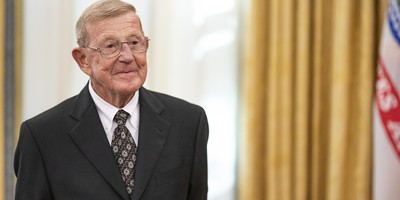When people learn that you are an economist, they often want you to predict which way the economy is going. There seem to be more than the usual number of calls for such predictions lately. But an economist should be more aware than others are of how hazardous such predictions can be.
One reason is that what happens in the economy is affected by what politicians do in Washington-- and who can predict what politicians will do?
However, let me go out on a limb, and try to predict what politicians will not do.
What would probably get the economy recovering fastest and most completely would be for the President of the United States and Congressional leaders to shut up and stop meddling with the economy. But it is virtually impossible that they will do that.
Think about telling all the millions of people who have lost their jobs, their homes or their businesses: "I really messed you up but, hey, nobody's perfect. So I'm going to leave things alone now." In fact, that would be hard even to tell yourself.
If the stimulus isn't working, the true believers have to believe that it is only because it hasn't been tried long enough, or with enough money being spent.
There are always calls for the government to "do something" when things are going bad. Those who make such calls have almost never bothered to check out what actually happens when the government does something, as compared to what happens when the government does nothing.
It is not just free market economists who think the government can make a mess bigger with its interventions. It was none other than Karl Marx who wrote to his colleague Engels that "crackbrained meddling by the authorities" can "aggravate an existing crisis."
Recommended
The history of the United States is full of evidence on the negative effects of government intervention. For the first 150 years of this country's existence, the federal government did not think it was its business to intervene when the economy turned down.
All of those downturns ended faster than the first downturn where the federal government intervened big time-- the Great Depression of the 1930s.
There are two conflicting assumptions about what happened during the Great Depression. The most popular assumption, especially among politicians, is that the market failed and the government had to intervene to save the economy.
Another assumption is that the market went down and was on its way back up when federal intervention sent it down again and led to massive unemployment. If you don't let facts get in the way, you can just pick whichever assumption you like-- and the first assumption wins that popularity contest, hands down.
But, if you look at the facts, they go like this: Unemployment never hit double digits in any of the 12 months following the big stock market crash of 1929 that is often blamed for the massive unemployment of the 1930s. Unemployment peaked at 9 percent, two months after the October 1929 crash, and then began drifting downward.
Unemployment was down to 6.3 percent by June 1930, when the first big federal intervention occurred. Within six months, the downward trend in unemployment reversed and hit double digits for the first time in December 1930.
What were politicians to do? Say "We messed up"? Or keep trying one huge intervention after another? The record shows what they did: President Hoover's interventions were followed by President Roosevelt's bigger interventions-- and unemployment remained in double digits in every month for the entire remainder of the decade.
There is another set of facts: The record that was set in 1929 for the biggest stock market decline in one day was broken in 1987. But Ronald Reagan did nothing-- and the media clobbered him for it.
Then the economy rebounded and there were 20 years of sustained economic growth with low inflation and low unemployment.
Can you imagine Barack Obama doing another Ronald Reagan? I certainly wouldn't predict that.

























Join the conversation as a VIP Member